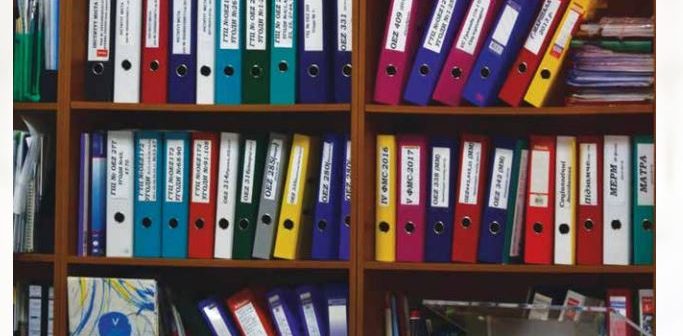By Mwangi Kioni stephen
When we talk about keeping proper books of accounts, a majority of business owners tend to see it as tedious and bothersome work… yet bookkeeping plays a vital role in their business. Yes, you may hate it but bookkeeping is not only a driver to show how you are progressing businesswise, but it also shows how disciplined you are in managing and running your business. Therefore, keeping proper books of accounts is not optional to any business.
Simple accounting mistakes may make your business exit the industry within its very first few years if not months. These business bloopers could range from failing to file tax returns to postponing the recording of receipts on time, not reconciling your bank statements, among other things, just to mention a few.
Luckily, here are some tell-tale tips to give you some insights into how to improve your bookkeeping:
• Consistent in recording and updating accounts • Take advantage of the accounting software
• Use cloud computing to safeguard your accounting data • Plan for your business tax in advance
• Have a regular audit of your business
1. Consistency in record keeping Recording your transactions every day is one of the most important things you can do for your business. It may sound difficult to do because of the hustle and bustle that people make excuses with. However, doing it little by little may change your business drastically. Scheduling at least 30 minutes of your time and updating or recording the day’s transactions could definitely change how your business is run. Some individuals may claim their firms are small and therefore, find it easier to record weekly or monthly, but, how sure are they that they will recall all the transactions?
As they say, practice makes perfect. It is important to make an effort to consistently record your day’s transactions and with time, it will be a normal routine and as a part of your day’s work. However, should you not update your book of accounts and keep on postponing it to a later date, it may cost your business heavily later on. Some of the records you need to be keen about include but not limited to:
• Reconciling your weekly or monthly bank statement
• Update the trade receivables account and trade payables accounts
• Identify and record newly acquired assets as well as any disposal
• Update any taxes filed and the respective payments vouchers
• Record any cash received and any expenses
2. Use the Accounting Software Technology has changed how businesses are conducted and it has made accounting work much easier. However, it may be a challenge to owners of the businesses who have inadequate knowledge about using accounting software technology. There are indeed numerous software applications that have revolutionized and made it easier for firms to keep proper books of accounts. This has been done by integrating all the records into one system and you can easily track a transaction with just a mere click.
To run your firm well, you need to know how to leverage these accounting programs if you want to maximize your returns and minimize your costs. For instance, software such as Quickbooks, sage, pastel, tally, and Wave, among others, provide the best solution to help you keep your accounting books in order. Some of them have been developed to an extent that they can easily detect the wording of receipts using scanning technology and populate the necessary data for bookkeeping. The firms that use the accounting software for bookkeeping enjoy some of these benefits:
• Accurate accounts are well maintained
• Verifying transactions is easier • Reconciling data is much faster
• Discrepancies can also be noticed very fast and rectified
• Easier recording of all transactions
• Ledgers are easily produced
3. Store Your Data in Cloud
Gone are the days when the only mode of storing important information was the lock and key system. Space in the office is scarce, leave alone the dust and any other catastrophe that may fall on the physically stored data. Hard copy documents that do not require signatures or fade quickly should not occupy much of your valuable space. For better bookkeeping experience, you want to use cloud computing to store your data safely and consequently, worry about other strategies to expand your business revenue.
The evolvement of cloud computing, which is commonly used to store data is with us to stay. We should appreciate the improvement of technology and how cheap and easier it is to store and retrieve the information. Cloud computing enables your data or information to always be stored and protected in a remote database/server. We have several firms that offer these great services to the business owners. Google apps, Apple I cloud, Amazon and Microsoft are among the so many vendors that offer this great service. As a business person, using this method as a way of bookkeeping will assist in:
• Keeping your information secure
• Cost savings • It is useful during data recovery processes • There’s increased collaboration and unlimited accessibility of information to authorized persons • There is an increase in the overall productivity
• It is useful during data recovery processes
• There’s increased collaboration and unlimited accessibility of information to authorized persons
• There is an increase in the overall productivity
4. Plan in Advance for Tax Filing and Payment

Tax planning is an integral part of any business strategy. This, therefore, explains why you should keep proper books of accounts. Failure to plan for your business, tax filing and payment can easily bring your business to its knees. The expense associated with tax cost is so excessive that it can dwindle your profits as well as your capital. You should update yourself with the new rules and regulations pertaining to tax issues and by so doing, you can be able to mitigate risks and expenses, respond quickly to unexpected charges, and maximize your growth potential. All in all, planning your tax filing ahead requires you to have kept proper accounting books to assist you in estimating your tax in advance and be able to set a fund for your business tax obligations on time.
5. Balance Your Accounting Books and Have an Audit
After properly recording all your transactions, it is good to subject your books to an independent audit. This will give you an insight into whether the collected information is appropriate and sufficient. An expert should be in a position to guide you on whether the books are balanced. A monthly, quarterly, semi-annual or annual audit could be done depending on the volume of transactions that have taken place. This audit will act as a guide on how to run and manage your business subsequently well. Being able to balance your books and having a regular audit will benefit your business in various ways, including:
• Errors made while recording or updating your data will be detected and prevented early
• Performing regular audit will help you in proper bookkeeping
• Fraud that could have been committed can easily be noticed
• Discipline and other ethical issues in the workplace will be well maintained
• It helps in the smooth running of your business in general
Final Thoughts
It is paramount to take care of your business by keeping your accounting books in order. Proper and effective bookkeeping in your business will not only instill confidence, but is also a way to detect problems and solve them quickly. It may be considered as a necessary evil but it is so essential to the operation, growth, and prosperity of your business. Parting shot; keeping good accounting records is not an optional but highly necessary undertaking for any business.




